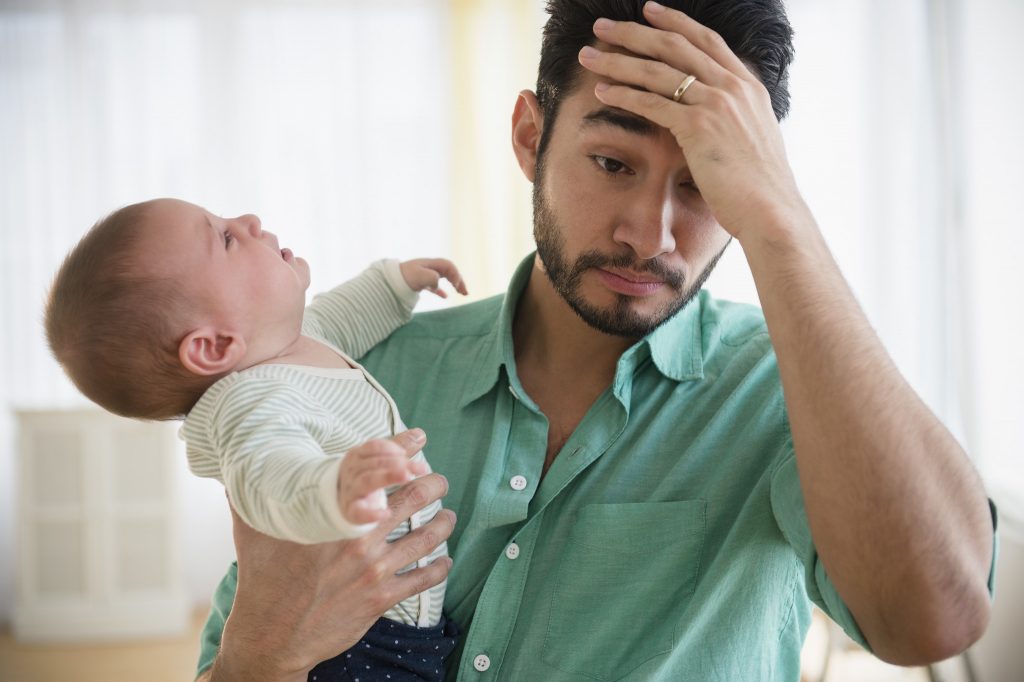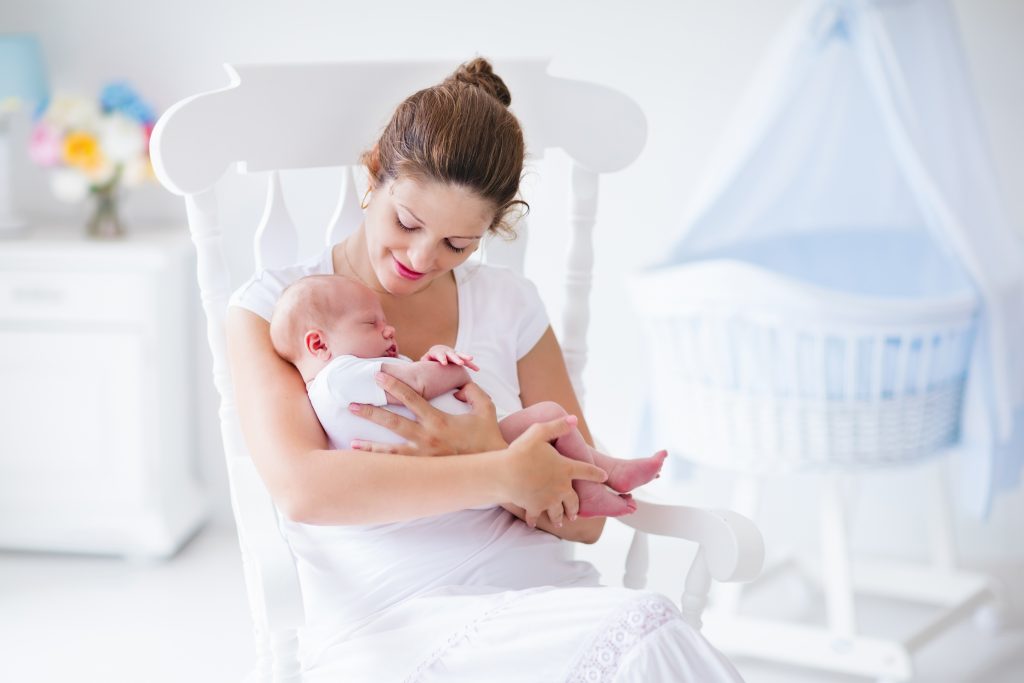What is Postnatal Depression? Causes & Treatments

“Birth Blues,” in medical sciences is described as Postnatal Depression. This condition is relatively prevalent in women (post pregnancy) they typically experience sadness, anxiousness, sadness, loneliness, tiredness, and somewhat weepy feeling.
| S.No. | What Are the Symptoms of Postpartum Depression? |
|---|---|
| 1 | Having Trouble Concentrating, Remembering Details, and Making Decisions |
| 2 | Experiencing Anger or Rage |
| 3 | Losing Interest in Activities That Are Usually Enjoyable |
| 4 | Suffering From Physical Aches and Pains, Including Frequent Headaches, Stomach Problems, and Muscle Pain |
| 5 | Withdrawing From or Avoiding Friends and Family |
What the Postnatal Depression Is All About?
A recent survey recorded, one in every seven ladies cope with after-pregnancy depression, the mood disorder in some women is so severe that they need to seek a doctor for therapeutic consultation. The Postpartum Depression involves a number of symptoms affecting the body in several ways. Delusions or hallucinations among pregnant women of diverse age groups are pretty common. However, one thing to note in here is that there is a fine line between the birth blues and the Postnatal Depression, as the latter is the extreme form and it usually doesn’t go with passing days. This type of depression happens usually after a few days post pregnancy or even can take up to a month for the symptoms to be experienced. The Postpartum Depression if untreated or overlooked with time might become severe, affecting overall health of the mom and her ability to take care of the baby. And, be very clear this depression happens to a majority of mothers, irrespective of their income, age, race or ethnicity, culture or education.
What Are the Symptoms of the Postnatal Depression?
The different Postnatal Depression symptoms differ from one individual to another, but an array of the popular warning signs are as follows-
- The Ladies Loss Their Interest in Pleasure Activities Such as the Sex after Giving Birth to the Baby
- Of late, You the Lady Experiencing Extreme Hunger Pangs or eating Much Less
- Anxiety Is a Common Red Flag for Postnatal Depression during the Post Pregnancy Phase in a Woman’s Life
- Uncontrollable Cries and Sadness for Long Period of Time
- Post Giving Birth Is a proof of Postpartum Depression
- The Women Dealing With This Depression Often Scared That They Might Not Be the Best Mother
- Scared That They Might Not Be the Best Mother
- They Usually Have a Fear That She Will Left Alone With the Baby to Take Care of, for the Entire Life
- Their Life Becomes Miserable
- The Postnatal Depression among Women Face the Common Symptom of Lack of Sleep
- The Mother Become Disinterested in Friends, Family or the Baby
- Difficulty in Learning, Concentrating, and Discussion Making Abilities of the Lady
At last, if you witness a handful of the above-highlighted warning signs in your wife after pregnancy and last longer than two weeks, then immediately seek a doctor’s advice and proper treatment.
Male Postpartum Depression
Not just the women, the men they too experience Postnatal Depression during the progeny phase and post birth. Unarguably, pregnancy is perhaps the best life-changing event in every woman’s and man’s life. Do you know one in every ten men can get Postnatal Depression? It is highly advisable if your man is experiencing the various symptoms of this type of depression, then seek a experienced postnatal depression in men doctor, in case the warning signs are present for weeks.

Here, in this post, we list all the possible symptoms of male Postpartum Depression–
The Possible Physical Signs Are as Follow-
- Severe Evening Headaches, Body Ache, and Tiredness
- The Hunger Appetite Suddenly Dipped
- Sleep & Walking at Odd Hours of the Day
- Sudden Weight Gain or Loss Can Also Be a Symptom of Postnatal Depression
The Physiological Changes-
- Sadness and Blues
- Sudden Changes in Mood
- Cranky and Anxious Nature
- The Patient Usually Become Isolated, Doesn’t Wish to Talk to Anyone In the Family
- The Man Faces the Difficulty of Managing the Daily Personal and Professional Life Tasks
- The Man Has the Desire to Have Sex with the Woman
- Feeling Low
Causes of the Postnatal Depression
There’s isn’t a single reason for the Postnatal Depression in a woman, there is a length of factors combined lead to this condition-
Physical Changes
The most common factor that causes depression in ladies in owing to the hormonal changes in the body post giving birth to the baby. In medical sciences, a majority of mothers usually have a dramatic drop of hormones, the estrogen and progesterone they cause the Postpartum Depression. Furthermore, the first-time mother commonly has a sudden dip in the hormones secreted by the body thyroid gland. This, in turn, can make the woman feel sluggish and completely tired.
Emotional Changes
Now, coming to the emotional issues, when any individual is sleep deprived and depressed, they are likely chances that she will be overwhelmed finding it tough to handle minor daily life tasks. Ladies become anxious how will she take care of the baby and the family, the stress levels experience a sudden spike. Some of the women feel that they have lost control of her life, and even have a suicidal tendency.
Postnatal Depression Treatments
It is no brainer to speak to a health specialist, if you are experienced prolonged depression signs after pregnancy. As a matter of truth with proper guidance and care your woman can easily come out this condition to enter the new phase in the life. The Postnatal Depression treatment involves the combination of three aspects, one is the self-help, other one is the therapy, and lastly the medication.
Self-Help

Well, it is quite easy to say once the woman has given birth to the baby the life becomes simpler, but on the other hand, it becomes a lot stressful with bundle of responsibilities to handle in the coming years. The self-help strategy of the Postnatal Depression treatment involves make all the necessary efforts all by yourself to get the life back on track. The important crucial part of this therapy is open up with the people around you, your partner, friends and relatives. One thing you need to be very clear, nobody can be a super mum, learn from your mistakes and move on. And, not to mention, give time to yourself, indulge in fun activities. Regularly exercise and stay away of alcohol, both are equally important if you are serious in the pursuit to get out of the post pregnancy depression phase.
Psychological Treatment
This is the first thing recommended by the doctor when a patient is suffering from Postnatal Depression-
The Psychological Treatments involves seeking consultation session with a mental therapist. Only a qualified doctor will understand what you are going through to plan a line of action to overcome your depression. There are usually 9 to 12 weeks sessions.
Antidepressants
If the things go beyond self-control, then only the doctors prescribed Antidepressants are way ahead.
In the end, if your lady is having trouble with depression after giving birth to a child, its time gave her that extra bit of care, along with true love & affection.




